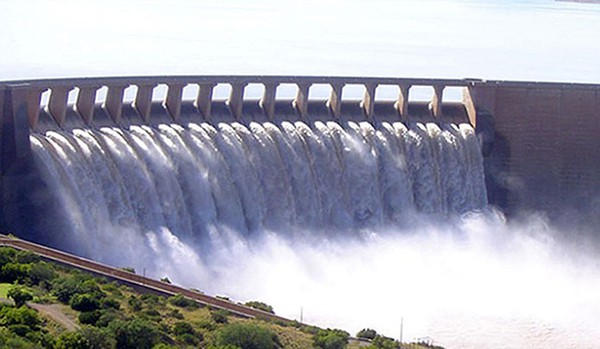THE Department of Water and Sanitation (DWS) Director-General, Dr Sean Phillips together with a team from DWS Water Use Licence Applications (WULA) met with different stakeholders and Independent Power Producers, to take them through the processes of applying for authorisation to use available water courses and the Department’s water resources and infrastructure to generate hydropower as an alternative energy to supplement the currently available electricity.
Addressing the hybrid briefing session that took place at Kempton Park in Ekurhuleni on Tuesday 11, April 2023, the DG said the DWS had revised its hydropower policy to enable utilisation of its infrastructure and water resources for renewable energy generation.
“The policy empowers DWS to remain within its mandate while supporting the much-needed investment in renewable energy generation in the country. We have a duty as the Department to ensure that the nation’s water resources are protected, used, developed, conserved, managed and controlled as stipulated in the National Water Act,” said Dr Phillips.
The DWS has developed policy principles that will apply to all institutions (Private or Public) in the interest of balancing sustainable water resource protection, water and sanitation provision and hydropower generation.
According to the policy, the DWS will support the development of hydropower as part of both social and economic development within the context of water scarcity and water infrastructure challenges without compromising sustainable protection of water resources and water and sanitation services provisions.
Dr Phillips also emphasised the principles of the window for Water Use Licence Application for hydropower.
“We are not going to provide any financial support to the applicants, during the application, construction, operations and maintenance. We are not going to be involved in any of the Eskom processes or own any electricity production. The Department will solely be responsible for Water Use Licence Applications and will ensure that the application processes are competitive, fair, transparent and underpinned by the spirit of equity allocation of water resources in line with the National Water Act”, said Dr Phillips.
Advocate Sipho Skasana, a Chief Director in the DWS Water Use Licence Application (WULA), said there were three phases of WULA application, and all the phases are necessary for the processing.
The first phase is a pre-application phase which will open on 17 April 2023 and will end on 30 June 2023. The second phase will be the application compilation and submission which will end on 31 January 2024. The third and final phase is application processing, decision and communication by the DWS.
The DWS will take a maximum period of 90 working days to process the applications.
“Once the decision has been made by DWS to grant a license for hydropower generation, the licence will last for a maximum of 40 years. The conditions of a licence specify that the construction should start within the stipulated time frame following the issuance of a licence. It should however be noted that all the applications should comply with the conditions of a licence to avoid the suspension and withdrawal of the licence according to Section 54 of the National Water Act,” said Adv. Skosana.
The DWS has initiated the DWS Hydropower Independent Producer Programme (DWS HIPP) in an effort to allow for the available infrastructure and water courses to be used to contribute to the power grid with renewable energy.
The programme is in response to the ‘Energy Action Plan’ as announced by President Cyril Ramaphosa to enable the production of renewable energy as an alternative source of energy to supplement the currently available electricity and contribute to tackling South Africa’s power crisis.
The types of hydropower technologies that can be applied for include Impoundment; river diversion or run-of-river; pumped storage and floating or kinetic turbines (small-scale generating capacity). In addition to the above, applications for floating solar panels can also be made.
A window for interested parties to submit pre-applications for water use authorisations will open on 17 April 2023.
Detailed information regarding the application process is accessible in the Electronic Water Use Licence and Application and Authorisation System (E-WULAAS) on the link: DWS: E-WULAAS – Documents in the DWS website.
